February 1, 1860
Rather cold. Went to the [law] office. It was full all day. Read the [N.Y.] Tribune. [Ezra S.] Sweet was in & told some of his rough incidents in the practice of law. [My cousin] George Stratton was in & wanted me to go to the store [to see him] when I went home. [Nathaniel W.] Davis wrote a letter to the Tribune saying that the efforts to extend the Chenango Canal was not a party measure, but was entered into heartily by both parties. The news came that Leuks was removed from the office [of] sheriff. That was a Republican measure. Evening, read. [My brother] Steve & [sister] Mary have gone to a spelling school on the point road. I guess there is a party somewhere for they have not returned after 10.
February 2, 1860
Cold. Went to Owego. Heard that [William] Pennington was elected Chairman [Speaker] in the [U.S.] House [of Representatives]. Did some writing that nearly took me all day. Evening, Mary Griffing was here, John Goodrich, Ruth Ann, Lee, Mr. and Mrs. Whyte, Ellen & one of the boys, & played cards, danced & blind fold. Broke up about 12 o’clock. Had such a pleasant time. Have not heard from South Carolina [yet].
February 3, 1860
Rather cold. Wrote letter to the N.Y. fellows but then could not send it. Baldwin, [Willoughby] Babcock and I got into a dispute concerning the inferiority of the nigger. Babcock denied an assertion of mine with some spirit. His eyes flashed as if mad. He is a rank abolitionist or in principle will say the nigger is a brother equal in mind but his theory is not his practice. I read some of the Irish history…
Evening got a letter from Camden, [S.C.]. [McCandless] wants me to come immediately. I shall start as soon as I can. Got a trunk, satchel, and cap for $3.62 of Hymes. Stopped to Uncle Aner’s. The girls there.
February 4, 1860
Not quite so cold. Walked a good deal today. Got a good many things. In the [law] office a little while. Smyth was in & laughed a good deal joking me. Got Lee’s watch for 8 dollars & gave my note for it. Lee here in evening. [My cousin] George Stratton came over. Wrote letters to Johnson & [cousin] Fannie Rockwood. Went to bed about 12.
February 5, 1860
Washed all over. Went to church. [Cousin] Jim Fiddis & Chet Higby came over. Did some reading in the evening.
February 6, 1860
Went up to John Taylor’s & bid him goodbye & the rest of the folks. Went to Owego, got a likeness & photograph & some other things. Called at Aunt Betsy [Platt’s. Saw [William] Smyth, [James] Rankine, [and Nathaniel W.] Davis. Got 2 volumes of Virgil of him. Afternoon, packed trunk. Jim Tinkham came in evening. C. Horton, J. K. & R. Goodrich came & Sed. Went to Owego with my trunk & called to Aunt Lucy [Fiddis’].
February 7, 1860
Tuesday. At 2 o’clock in the morning, I started for Camden, South Carolina. [My brother] Steve went over to the depot with me. I had a pleasant ride. There was considerable snow down by the Delaware [River]. That is a very rough country. The hills rise in some places perpendicularly over the river & were covered with ice. It was quite warm.
I got into New York [City] about 12. I left my trunk in Jersey City & went over into New York [City]. New York is a city that did not come up to my expectations, but the [Hudson] River is broader than I thought. I got my books but had not time to go to Mrs. Rice’s. My fare to New York [City] was $5.25. I got a ticket in New York for Wilmington [North Carolina] which cost $19.80. My books cost ___.
I started from New York at six. At Trenton where we crossed the battlefield, the train went very slow. Arrived at Philadelphia about 10 in the evening, crossed the [Delaware] river in the ferry boat & rode in the omnibus to the west end of the city for the cars. I was intensely tired so much that I could not sleep.
February 8, 1870.
Wednesday. Arrived in Baltimore a little before 4 o’clock a.m. Before getting into Baltimore, we crossed [the Susquehanna River] in a ferry boat. The evening & morning were very cold. Arrived in Washington a little before daylight. I could not see the Capitol plainly. Took the steamboat for Acquia Creek, the distance being 15 miles. Saw Mount Vernon [going] out. It did not look as well as I thought. It was very cold on the river. It is very broad. Richmond [Virginia] is a beautiful place. It seems to have been built on more hills than Rome. There is a beautiful statue of someone [George Washington] on a horse. Got into Petersburgh [sic] about 5 in afternoon.
[Editor’s note: Goodrich described this journey from New York to South Carolina a year later in a piece that he wrote for a New York newspaper. I’ve included it here as follows:]
I left Washington in the depths of mid-winter. The Potomac, chilly and yellow, bore me without a sentiment of regret to my destination. One balmy spring day I was crossing the James River at Richmond, I turned to gaze a moment on the beautiful image. The sky was clear & blue. The white walls of the Capitol & buildings glistened in the sun, upon the many hills, each studded with buildings and crowned at the top with beautiful & chaste mansions, like some old Grecian habitations of their Gods. The sky & the earth met in the East and was blended into the deep blue of the sky, which appeared to me to be equal to the Italian in all its beauty & intensity. The spring flowers had just blossomed & the perfume poured on my senses like music to the soul. The acacia and the orchids sent out their sweet & delicious odors and the gum & sycamore with huge trunk & towering branches overhung the river, & cast their shadow far out into its rippling depths. The hum of activity was hushed, & the first time in my life, I felt the emotional power of that expression – beauty in repose.
February 9, 1860
Arrived in Wilmington [North Carolina] Thursday morning about half past 5. Crossed [the Cape Fear River] in a ferry boat to the cars. The morning was very cold but it was quite pleasant the rest of the day. There was nearly as much snow in Virginia as in New York. Some in South Carolina. In South Carolina we passed through miles & miles of swamp land, densely filled with timber and brush. In North Carolina there was a great many yellow pine, chipped for making turpentine. There were vast fields of cotton in South Carolina, but the old stalks remaining. In some places the niggers were plowing with one horse or mule.
[Editors note: Though embellished, Goodrich described this segment of his journey in a piece that he wrote for a Northern newspaper a year later:]
The Dismal Swamp is not so terrible as its name implies. I passed it to the South, could see its edge of gigantic trees & entwining moss girding it in like a wall of stone. The road to the south from Richmond leads through the eastern part of North Carolina, a country flat, sterile & sandy interspersed with almost interminable forests of pine with here & there a pale green cypress over towering all.
These forests at first seemed to be without inhabitants either of man or of animals, but as we advanced from the dwarf and sparsely scattered pine & oak, which bordered on the outskirts, we came unexpectedly upon busy workmen. The thick undergrowth of brambles & briars was cut out. The pines were chipped into grooves about ten feet from the ground from which its pitch was oozing and dripping into the troughs beneath. Several log houses are scattered about, the furnace & warehouse, & barrels filled with the resin piled in stately rows or jumbled in utter confusion. In the distance we see clouds of smoke rising from huge black stacks of earth, while workmen are busy felling trees. We are in the midst of the tar and turpentine manufacturers, & in the midst of soot, smoke, and dirt. The ebony looks still more black, & the white man assumes a dusky countenance.
We seemed to be hemmed in by a barrier of limitless forest, & shut out from every breeze so refreshing to the feverish cheek. At night we lay in a hammock tormented by mosquitoes, & lulled to sleep by the endless rattle of the locusts and the melancholy strain of the whippoorwill. Once I heard the distant cry of the half-famished wolf, but he came not that night into the settlement. A huge & gaunt black slipped out with a rifle and at break of day, shot him and brought him in. He was longer than any I had seen and lank & savage even in death.
In the south of North Carolina, the low country is low and marshy. The rivers had overflowed their banks & for miles we could see the muddy water glistening in the forest of pine, gum, & willow, & here & there a gigantic tree, intertwined with trailing moss & hanging pendant from its branches. This moss gave to the scenery a singular somber and wild appearance. Farther to the south, beyond the beds of the rivers lie the rich savannas, sparkling with the rice stalk, vast fields, white & waving with the bursting ball of the cotton, extend away in the distance until forests & sky are blended and skirted by dense thickets which border upon the river or the innumerable hammocks. Small streams in his narrow, deep canal-like beds roll thin turbid waters, winching about woods and clearing into the rivers.
In the northern portion of South Carolina, the country becomes undulating, rolling hills & uplands & separated by gorges in which the drift of the hills accumulate & the water stagnates. Forests of pine are more frequent, the gum less numerous. South Carolina, though small, possesses in herself elements & resources, which can make her independent of all others. She lacks the development of these resources to make her soon what Calhoun & the most sanguine nullifiers wished. Transversed by many rivers, which roll grandly down along muddy banks, lined with luxuriant vegetation, from the graceful cone to the waving sycamore, bog, laurel and gum, she presents a lovely picture to the eye of the amateur and a prospective one to the utilitarian. They [the rivers] in this state, & so also have I observed elsewhere, are narrow & deep, sometimes the sides descend perpendicularly thirty & often fifty feet. The waters wash & sink until they come to the bed of gravel, which immediately underlies the strata of loam, and as there is often a thick layer of clay, the channel consequently is deeper. Occasionally I saw the old bed of a river, dry, gravely & sandy – a sand of whitish color in which in embedded shells of mollusks of many varieties from those so small that can scarcely be distinguished to the clam & oyster, the great frequenters of our rivers, while miles & miles away was the water which once poured through it.
Arrived in Kingsville [via the Wilmington and Manchester Railroad, distance 171 miles] about 4 in the afternoon. Then took up cars for Camden & got there about 6 pm. Went to the [Mansion House] hotel & then went to Mr. L. McCandless’ [house]. He was not in. I returned to the hotel but about eight [o’clock] his assistant came down & I went up to his house & stayed a short time. Stayed at the hotel all night.
[Editor’s note: Goodrich described Camden, South Carolina, in a piece that he wrote for a Northern newspaper in 1861. It reads:
Camden, a small and picturesque village, is about two miles east of the Wateree [River]. It flows into a stream north of this place, bearing the name Catawba, and before it reaches the Atlantic, receives the cognomen of Sautee. It contains some relics of Revolutionary times and may legends of the heroic soldiers – both friend and foe. Eight miles above at a place called Gum Swamp, General Gates was defeated. That veteran officer and soldier receives at the hands of the South Carolinias may an imprecation. On the outskirts of the town on rising ground not yet cleared of the pine and the gum took place the battle of Hobkirk’s Hill, or rather where skulking was carried on systematically. Those soldiers who struck terror to the enemy in Mexico from South Carolina were from this place. Of those men, scarcely one is left. They have shuffled off this mortal coil, hastened by dissipation and disease. DeKalb fell here. His body, as is supposed, lies buried in the Presbyterian Church Yard. A miserable, diminutive monument, cracked by time and black with mould over it, simply says, “DeKalb,” on one side, “By birth a native of Germany, by principle, a citizen of the world,” on the other.
February 10, 1860
Wrote a letter to mother. Went to the school & remained there the school hours. The boys are wild. Afternoon Mr. McCandless’ negro brought up my baggage. I am to board with him & have his assistant for my chum. After paying up, I had $0.25 left. Unpacked my trunk & find all the things safe.
February 11, 1860
Had nothing to do. I read some Latin, wrote a letter to [Cousin] Lucy [Fiddis], & commenced one for home. Felt rather homesick.
February 12, 1860
Went to church. I did not like the preaching. Studied all the rest of the day.
February 13, 1860

Leslie McCandless Schoolhouse in Camden, South Carolina where Goodrich taught in 1860 (built in 1850)
Today was the first day of my teaching. I got along very well – at least so I thought during the forenoon. But in the afternoon came the tug of war. I asked the class both in Latin and Greek questions they could not answer. They were none of the best scholars by any means for such a man [with a reputation] as Mr. McCandless ought to make. But in the evening he said that some different arrangements must be made for I was wholly incompetent to go on with those classes. He would have dismissed me immediately but his kinder feelings condemned the idea. He said he would make arrangements with me till the first or middle of April to hear other classes, but [only] at the rate of $400 a year! I am feeling very miserable & have cursed the day that I wrote to him accepting the situation. I am alone among strangers & without money. But I will try to put trust in God & do my best. Sent a letter for mother today.
February 14, 1860
Rainy day. Heard the classes in English branches that McCandless gave me. I did not hear any in Latin or Greek. If I stay till the 1st or the middle of April I can scarcely make enough to carry me home with the deducted salary he proposes to give me. I noticed today that almost – in fact all – the textbooks used in the South are from the North & they have an inveterate hatred to all books that speak derogatorily of the South. I commenced [reading] Kenilworth tonight. Received two valentines. Sent a letter to [Henry] Handerson asking him to help me to secure a place to teach.
February 15, 1860
Very pleasant & warm today. Same course in school as yesterday. I would take it very well if McCandless would not interfere. But he is continually finding fault with me. I could [not] do anything to suit him. My position is worse than a slave’s. McCandless – when he gave me to understand that he did not want my services in Latin or Greek – said he would try to get me a place in a family [as a private tutor]. Whether he will or not, I do not know. Left school about 3 o’clock.
February 16, 1860
Went to school.
February 17, 1860
Very pleasant. This is the speaking & composition day. Got through about 3 o’clock. Read Kenilworth.
February 18, 1860
Rainy. Went about the place some. Saw the monument to DeKalb. It is not very high, but is about 5 feet square – an obelisk. It is old and grown over in some places with moss. The place is farther up than where it was. There are some of the revolutionary relics. The house of Cornwallis. It is a very old place.
[Editor’s Note: Goodrich described the Cornwallis House in a subsequent piece that he wrote for a Northern newspaper. It read:]
Many of the oldest buildings are kept from falling into ruins from being associated with some stirring event in the Revolutionary history. An old building still remains called the Cornwallis house, which he made his headquarters. It is indeed a relic of the older time. A ball was given at this house in honor of him. Before it, and a little distance from the portico, stands a cannon, sunk nearly halfway in the ground, once belonging to King George and stamped with the regal sign, now beautifully spiked. The house is three stories high with hip roof and dormer windows. A narrow portico, extending beyond the width of the doors, reaches from the base to the roof. The wide entrance door is reached by a high flight of steps. It stands on a broad open field. The rich vegetation which surrounds it has faded. The giant oak, gum, and sycamore have lived out their centuries and have fallen beneath the elements, and nothing bears their traces but the huge and sapless stumps.
From the top of this building you can see amid the trees of its bank the glistening Wateree. In the east, you see the white monuments of the dead, the old fashioned quadrangular and high wall of brick which encloses a family’s last earth and the beautiful railings of a later date. In another direction lies the outskirts of Camden, houses peeping out of groves, mounted on pedestals of brick, and surrounded with flowers of almost every description.
The court house is a fine building. Read Kenilworth. The yards in some places are pretty. The shrubbery being arranged fantastically. The mock orange tree is the principal ornamental tree. DeKalb was buried here.
February 19, 1860
Sunday. Went to church. Bishop [Thomas Frederick] Davis preached. He is nearly blind but intends to have an operation performed soon. He is about six feet high, has a large head, high forehead and retreating – much more than Dr. [Benjamin] Hale’s. He preached a very good sermon but not such a one as I had expected. He is below Bishop DeLancey.
The climate is changeable. Today it is pleasant. It is something like the northern spring days — salubrious, exhilarating, but without the northern oppressive sensations when warm weather comes on. The land marshy near by & in those places it is sickly. The robins are thick but their breasts are not so red as when in New York. The people are very sensitive about slavery. They are polite and bow to all they meet whether acquaintances or not. The mistletoe grows on the trees & does not come from seeds. It is green the year round. Spruce and arbor vitae grow here.
February 20, 1860
Pleasant day. The same routine in school as formerly. Been studying Latin & Greek assiduously. Completely tired out. I leave the school about 3 generally.
February 21, 1860
Rather pleasant today. There has been a cool breeze blowing all day & it is not uncomfortably cold with the windows raised. We had a new student today, rather old. He is from Arkansas. He was a school teacher there & is very ignorant. The scholars make some of the most laughable mistakes imaginable & it is with difficulty that I can keep from laughing. Many of them do not seem to have any sense of feeling at all. They are very obtuse.
February 22, 1860

Camden Female Seminary run by Fanny McCandless. The portico of the McCandless residence is at left of picture.
Very rainy this morning. The streets & the yard at the school were tolerably flooded. It cleared off about noon and we had a warm and pleasant day. Not many in school. Got a letter from home today. Been studying and doing nothing. Feel very tired. The ladies are playing & singing up in the parlor. Miss [Lucy Ann] Fisher, the [21 year-old] teacher of French in the Female school [run by Mrs. McCandless], was here to tea. She is not very good looking. Teaching is a slave’s life, I must confess – especially when one is not considered anything & is continually found fault with. I never say much at the table – not to the lady teachers, nor will I. Mr. McCandless never does & thinking so little of me as he seems to do, I am loathe to try to appear differently.
February 23, 1860
It has been a very pleasant day. Rather warm & comfortable. The more I see of Mr. McCandless, the less I like him. I am woefully tired tonight. He has given me nearly all the youngest & most stupid boys in the school & it is very hard work. I do not teach either German or French, Latin or Greek – nothing but the English branches or nothing beyond reduction in arithmetic. I hear reading, spelling, analysis, history, mental arithmetic, geography, definitions, grammar & two classes in arithmetic as far as fractions one class. I hear eight classes besides the little boys who make about 3 classes. I do not care very anxiously to stay here if I can get another place as good as far as the salary is concerned. If he will only try to get me one I will be everlastingly obliged to him, though I can never forget the vexations he causes me. The other day he looked at the copy books & said aloud that “I must get better copies. He shouldn’t have such works.” He is seldom pleasant. Long teaching has sadly soured his disposition. Took a walk this evening & stopped at the school where the boys were exercising. The boys are jovial yet are coarse, but in general do not exceed the northern boys. I am studying hard on Latin, Greek, German & French & have but little time for other reading.
February 24, 1860
Pleasant but chilly. Mr. Mack left this afternoon to go to his sick sister [and] will not be back until Sunday. Received a long letter from home. Bob Herrick died at Albany and they said Kansas was a free state, though I have not seen a paper since I have been here. I feel bad tonight. I hardly know what to write home about the change that Mr. Mac has made in regard to me, but it must come out so I had better write the whole circumstance.
February 25, 1860
No school today. Received a letter from [cousin] Lucy Stratton. Read & wrote. Took a walk around the country. Went to the Cornwallis house. It is an old square building 3 stories including the basement. The rooms are lofty and heavily corniced. There are two porticos in front, one above the other. Went to the [old Quaker] cemetery. There is a monument to Lieut. Cantey who was killed in the Mexican War. The graves in the little lots are surrounded by a brick or stone wall 4 feet high [with] a iron or wood railing, and some of the walls are surmounted by an iron railing. The tombs are sometimes bricked over in the form of a curve & with an oblong masonry capped with a flat marble slab. Read the rest of the day.
February 28, 1860
I was obliged to keep a boy today to recite his lesson. I was sorry that I did for it made him feel very bad. Manget & I took a walk in the evening. Studying & reading. I staid in the parlor after tea & the ladies sung. Mrs. [Fanny] McCandless says that the tradition is that DeKalb was buried in the old burying ground & that when Lafayette visited this country [in 1824], the cornerstone to the monument was laid, & the remains as were supposed to be his were taken up & deposited under the monument. So there is no absolute certainty that the monument marks the resting place of that noble man.
Reading on the fine arts. Miss Dargan is rather a pretty girl but her eye is not clear enough. [She is] rather tall & slender, not a very full bust, not a very high forehead, [and has a] retreating chin — so much so that it seems an effort to shut her mouth. Yet many would call her pretty. Miss Morgan is of dark complexion, not so tall as Miss Dargan, & rough skin, & slightly covered with little ruptures. Miss Carpenter is tall, [has a] thick large head, high forehead, light complexion, large black eyes, [and] a nose slightly turned up & large mouth. Miss Dargan has a fine complexion & has beautiful dark hair. None of these [ladies] have very good or pretty teeth. Miss Dargan is young — about 19. The others are older.
February 29, 1860
Rainy in the afternoon. Nothing new. In the evening after the women had gone out, Mr. Mack, Manget & myself were there & he said he wished he could get a good teacher somewhere. That he thinks as little as possible of me is evident & that the women teachers deride me, I am quite sure. I am in a situation ten times more burdensome than such a place as one would have to put up with insolence for hire. Yet I hope I may do better. I will trust more to God.
Footnotes
Julius and Bennet Hymes were merchants in Owego in 1859. These brothers, natives of Germany, were 33 and 21, respectively at the time.
Virgil was the classic textbook for teaching Latin at the time.
The statue Goodrich noticed while passing through Richmond was of George Washington riding a horse that was erected in 1859.
Johann de Kalb (171-1780) was a German soldier and volunteer who served as a major general in the Continental Army during the American Revolutionary War. At the Battle of Camden on 16 August 1780, DeKalb’s horse was killed under him and he tumbled to the ground where he was shot three times and bayoneted repeatedly. He died three days later while being held as a prisoner of war in Camden, South Carolina.
Thomas Frederick Davis, Sr., had been pastor of the Grace Episcopal Church of Camden since 1846 and bishop of the diocese of South Carolina since 1853. In her diary, Mary Boykin Chesnut referred to the Bishop in November 1861 as “the old blind bishop” so if he had surgery following Goodrich’s diary entry, it was ineffective in restoring his sight.
Robert R. Herrick, a twenty year-old student at the Albany Law School, died in February 1860 after 12 days of “putrid sore throat.” [Source: U. S. Federal Census Mortality Schedules 1850-1880] Robert was from Athens, Bradford County, Pennsylvania, — a few miles down the Susquehanna River from Owego, New York.
This was Second Lieutenant James Willis Cantey who was killed at the Battle of Chapultepec during the Mexican War.
According to the U.S. Federal Census Slave Schedules, Leslie McCandless owned four slaves in 1860 — three mulatto females, ages 36, 15, and 13, and one mulatto male, age 11. Goodrich later identifies the male as “Charles.”
The 1860 U.S. Census for Camden, South Carolina records the following occupations among its residents:
| Occupations | Number |
| Architect | 1 |
| Artist | 1 |
| Baggage master RR | 1 |
| Baker | 3 |
| Bank Teller/Cashier | 3 |
| Banker | 1 |
| Bar Keeper | 1 |
| Barber | 1 |
| Blacksmith | 2 |
| Boarding House | 2 |
| Bookkeeper | 6 |
| Bootmaker | 1 |
| Brickmaker | 1 |
| Broom maker | 1 |
| Butcher | 2 |
| Carriage trimmer | 1 |
| Clergyman | 9 |
| Clerk | 39 |
| Clerk of Court | 1 |
| Conductor for train | 2 |
| Cooper | 4 |
| Daguerrean artist | 1 |
| Distiller | 1 |
| Druggist | 1 |
| Editor | 1 |
| Farm Laborer | 2 |
| Fireman | 2 |
| Fireman to Engine | 6 |
| Guardman | 5 |
| Gunsmith | 1 |
| Harness Maker | 6 |
| Hotel Keeper | 1 |
| Judge | 1 |
| Laborer | 76 |
| Lawyer | 3 |
| Locomotive Engineer | 2 |
| Mantuamaker | 3 |
| Master mason | 8 |
| Mechanic | 19 |
| Merchant | 39 |
| Midwife | 1 |
| Miller | 1 |
| Milliner | 1 |
| Overseer | 2 |
| Painter | 2 |
| Physician | 4 |
| Planter | 11 |
| Postmaster | 2 |
| Printer | 1 |
| Publisher | 1 |
| Railroad Agent | 2 |
| Seamstress | 63 |
| Servant | 3 |
| Sheriff | 1 |
| Shoemaker | 5 |
| Silversmith | 2 |
| Speculator | 1 |
| Student | 12 |
| Surgeon dentist | 1 |
| Tailor | 5 |
| Tax Collector | 1 |
| Teacher (Classical) | 2 |
| Teacher (Common) | 5 |
| Teacher (French) | 3 |
| Teacher (Mathematics) | 1 |
| Teacher (Music) | 1 |
| Tinner | 3 |
| Washwoman | 1 |
| Watchmaker | 2 |
| Well digger | 1 |


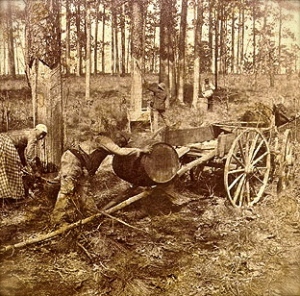
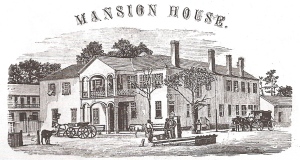
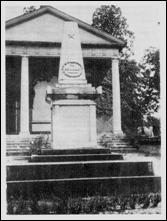
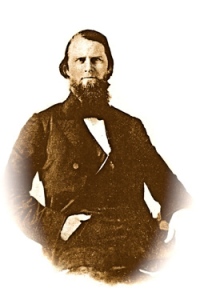
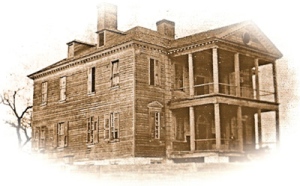
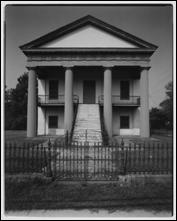

Leave a comment